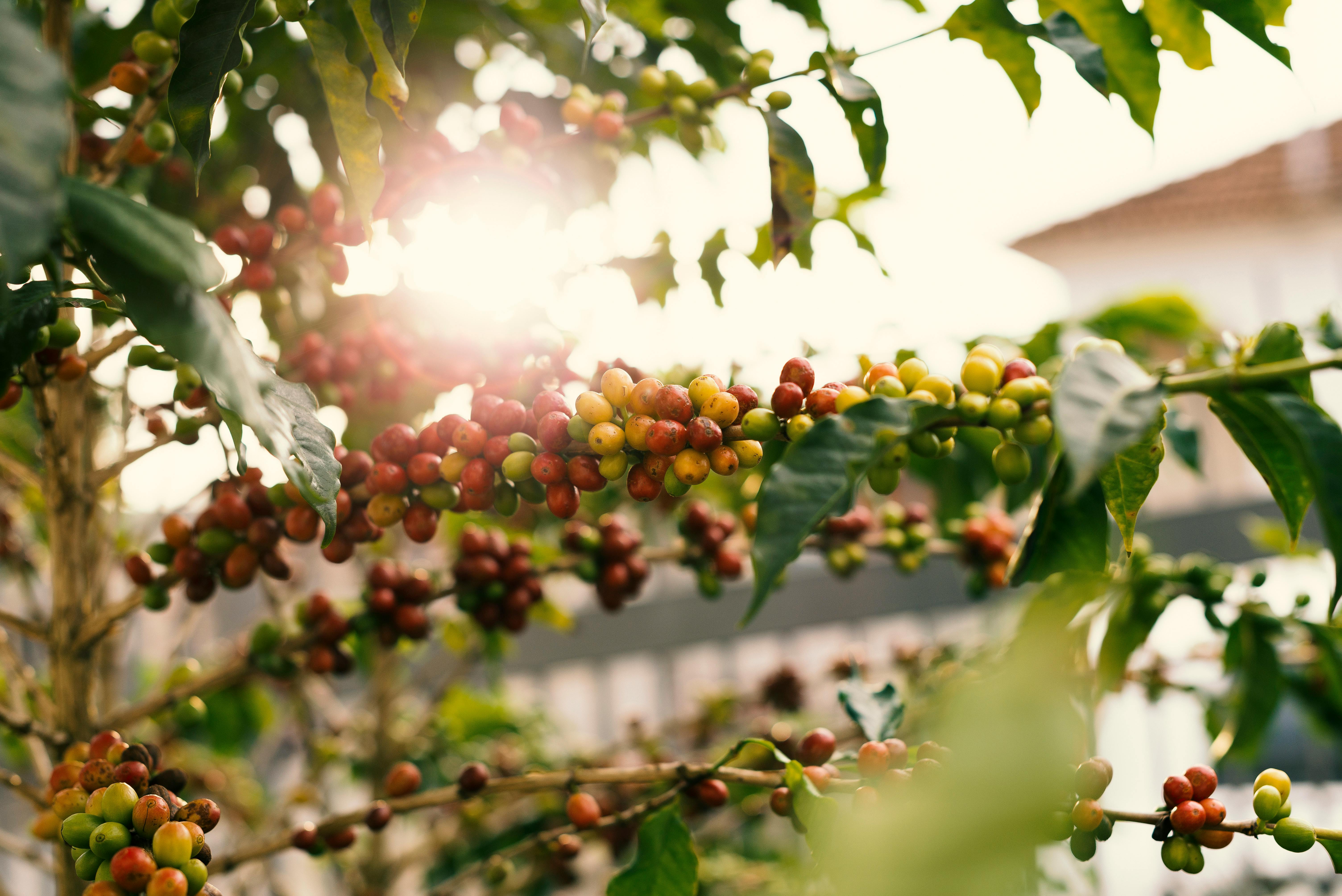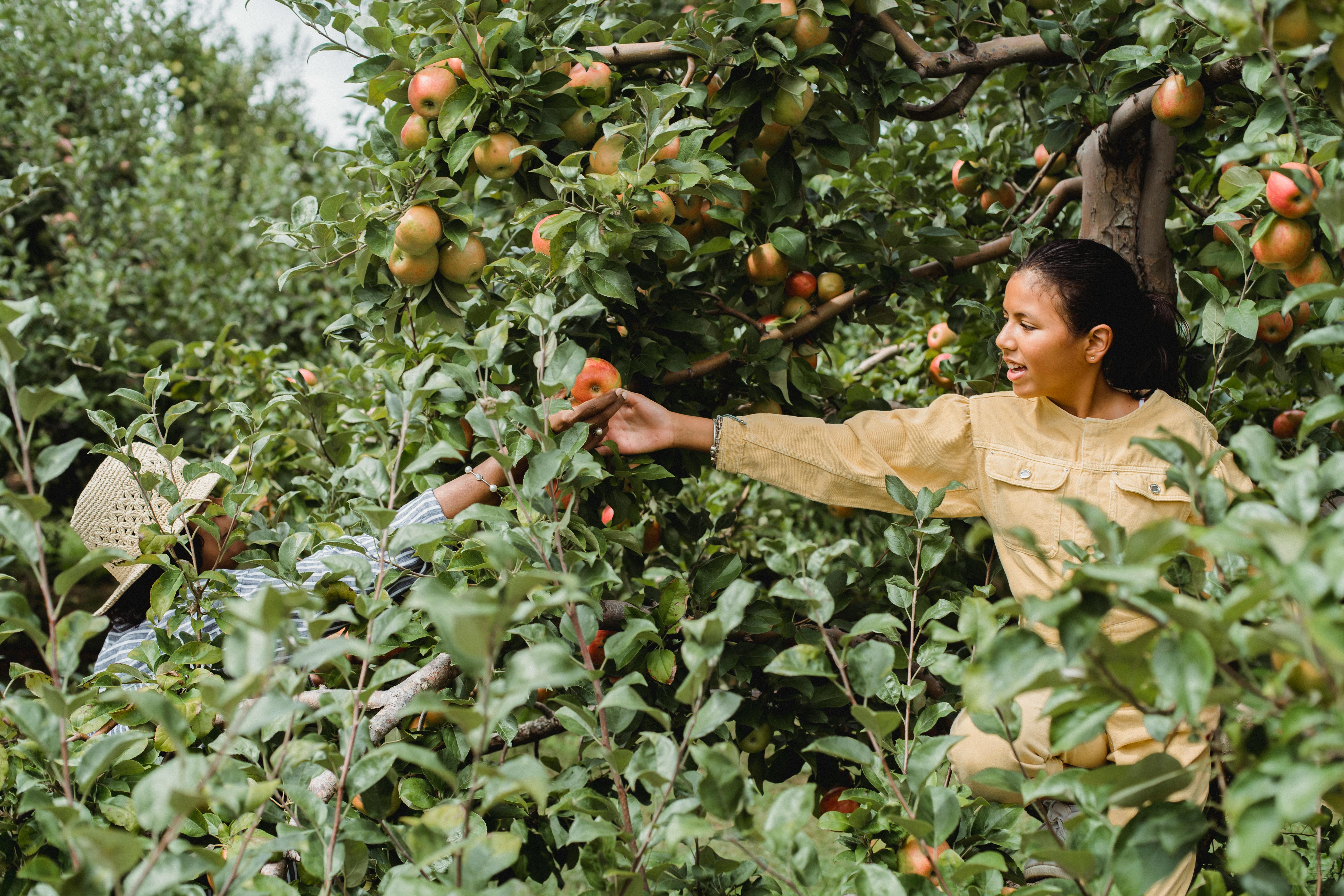Photosynthesis and Fruit Production
Photosynthesis is an essential process for the production of fruits. It involves converting light energy from the sun into chemical energy that can be stored in sugars and other compounds. This energy is then used by plants to create new cells, which in turn are used to produce fruits. Photosynthesis also plays a key role in the development and ripening of fruits, as it helps to regulate the levels of carbohydrates, amino acids and other nutrients needed for growth. As photosynthesis increases, so does fruit production, which is why it is so important for farmers and gardeners to ensure their plants have access to plenty of sunlight.
In addition to providing energy for fruit production, photosynthesis also helps plants to absorb essential minerals from the soil. These minerals are then transported throughout the plant’s tissues, helping to provide essential nutrients needed for growth and development. Without these nutrients, fruits would not be able to develop properly or achieve their full size or flavor potential. Photosynthesis also plays an important role in regulating temperature within the plant tissue, as well as moisture levels that help with ripening processes.
Overall, photosynthesis is a crucial process for fruit production and quality. By ensuring that plants have access to plenty of sunlight and essential nutrients from the soil, farmers and gardeners can help optimize their yields while producing flavorful and nutritious fruits.
Pollination and Fertilization
Pollination and fertilization are essential processes for successful fruit production. Pollination is the transfer of pollen from the male parts of a flower to the female parts, typically done by insects or other animals. This process is necessary for plants to reproduce and produce fruit. Fertilization is the joining of the male and female gametes of a flower, resulting in the creation of a seed. The seed contains genetic material from both parents, which allows for genetic diversity among offspring.
Pollination and fertilization are vital components of successful fruit production as they enable plants to produce viable seeds. Without pollination, flowers will not be able to be fertilized, preventing fruit formation. Similarly, without fertilization, no viable seeds will be formed that can then be used to produce more plants in successive generations. As such, these two processes are essential for sustaining a healthy crop and ensuring successful fruit production over time.
In addition to providing genetic diversity among plants, pollination and fertilization also contribute to a more nutritious end product for consumers. Pollinated flowers contain higher levels of vitamins and minerals than those that have not been pollinated, resulting in increased nutritional value within harvested fruits. Furthermore, when flowers are allowed to properly fertilize, they often produce larger fruits with longer shelf lives than those that are not properly fertilized or pollinated.
Overall, pollination and fertilization play an important role in fruit production by enabling plants to successfully reproduce and create viable offspring with increased nutritional value for consumers. Without these two processes, it would be impossible for plants to sustainably produce fruits over time with any degree of success or nutrition value.
Soil Quality and Fruit Production
Soil quality is an important factor in fruit production since it provides the essential nutrients for plant growth. Healthy soil helps to promote vigorous plant growth and encourages healthy fruit production. Poor soil quality can reduce yields, decrease the quality of the fruit, and lead to crop failure. It is thus essential for farmers to maintain good soil quality in order to ensure a successful fruit production.
The most important aspect of soil quality is its fertility, which is determined by the presence of organic matter, nutrients, and beneficial microorganisms. Organic matter helps improve the structure of the soil, allowing for better root growth and water absorption. Nutrients such as nitrogen, phosphorus, and potassium provide fuel for plants to grow and produce fruits. Finally, beneficial microorganisms help break down organic matter into forms that are more easily used by plants.
Maintaining good soil quality is an ongoing process that requires regular monitoring and management practices. Farmers should regularly test their soil in order to identify potential nutrient deficiencies or other problems that might be affecting their crops. Additionally, they should incorporate crop rotation practices in order to maintain soil fertility over time. This will ensure that crops are not depleted of particular nutrients due to sustained harvest from one area of land or type of crop over a long period of time.
Finally, farmers should also practice sustainable farming techniques such as cover cropping or mulching in order to preserve the health of their soils over time. These practices help reduce erosion, retain moisture levels in the soil, add organic matter back into the system, and promote healthy microbial activity all of which contribute towards maintaining high-quality soils for successful fruit production.

Nutrients Needed for Plants to Produce Fruit
Plants require a range of nutrients to produce fruit. These nutrients include carbon, nitrogen, phosphorus, potassium, calcium, magnesium and sulfur. Carbon is essential for photosynthesis which helps plants produce energy needed to grow and develop fruit. Nitrogen helps the plant create proteins and enzymes that are important for growth and development. Phosphorus helps with root and flower development as well as aiding in energy production. Potassium is important for controlling water balance in the plant, as well as aiding in photosynthesis and helping with seed formation. Calcium is important for cell wall development and plant growth while magnesium aids in chlorophyll production and photosynthesis. Finally sulfur helps the plants create proteins that are essential for cell growth and development.
Without adequate levels of these essential nutrients, plants will not be able to produce fruit or may even die prematurely. It is therefore important to provide these nutrients through soil amendments or fertilizers. This will help ensure that your plants have enough of these key nutrients in order to grow healthy fruit-bearing branches and stems.
How Can Plant Stress Affect Fruit Production?
Plants are incredibly resilient organisms, but they can still be affected by a variety of environmental stresses that can affect their health and productivity. When it comes to fruit production, plant stress can have a significant impact on the quantity and quality of the final crop. In extreme cases, plant stress can lead to reduced yields or even complete crop failure.
Plants can be stressed by factors such as drought, nutrient deficiencies, extreme temperatures, changes in light intensity and duration, insect infestations, diseases, and even air pollution. Drought is one of the most common causes of stress for plants and can cause them to become dehydrated and unable to produce fruit. Nutrient deficiencies can also affect fruit production as the plant may not be able to take up enough nutrients from the soil to support healthy growth and production of fruits. Extreme temperatures can cause plants to become heat-stressed which affects their ability to photosynthesize properly and produce fruit.
Changes in light intensity and duration also affect fruit production as plants need a certain amount of light for photosynthesis to occur properly. Too much or too little light will affect the growth of leaves which is essential for photosynthesis and fruit production. Insect infestations can also damage plants as they feed on leaves and fruits which reduces the amount of food available for the plant to use in producing fruits. Diseases caused by fungi or bacteria can also damage plants and reduce their ability to produce fruits. Finally, air pollution from industrial sources can reduce photosynthesis efficiency which affects the amount of fruit produced by a plant.
Overall, there are many environmental factors that can affect a plant’s ability to produce fruits. By understanding how these factors influence plants’ health and productivity, farmers are able to take steps such as irrigation management or pest management interventions that help minimize stress on their crops and maximize their yields.
What Role Does Weather Play in Fruit Production?
Weather plays a major role in determining the success of fruit production. The temperature, rainfall, and sunlight determine the growth and development of fruit trees, as well as the quality and quantity of the fruit they produce. Temperature is an important factor for fruit production because different types of fruits require different temperatures for optimum growth. For example, citrus fruits require warm temperatures while apples prefer cooler temperatures. Rainfall is also important for healthy fruit production because it provides essential water to the trees and helps keep them hydrated during periods of drought. Additionally, rainfall helps to maintain soil moisture which is necessary for nutrients to be available to plants. Sunlight is a key factor for photosynthesis which helps produce food for the trees and aids in their overall growth and development.
When these three weather components are balanced, they create an ideal environment for healthy growth and quality fruit production. However, if any one of these components becomes too extreme or imbalanced, it can lead to unfavorable conditions that can negatively impact fruit production. For example, excessive heat may cause premature ripening or damage crops while excessive rain can lead to fungal diseases that can kill off entire crops. It is therefore important that farmers pay close attention to weather patterns in order to ensure optimal growing conditions for their fruits.
In conclusion, weather plays a major role in determining the success of fruit production by influencing temperature, rainfall, and sunlight levels which all have an effect on plant growth and development as well as the quantity and quality of fruits produced. Farmers must take into account these varying weather conditions when planning their crop cycles in order to achieve maximum yields from their crops.

Conclusion
Fruits are essential components of a plant’s reproductive cycle, playing an important role in the dispersal of seeds over large distances. This process is beneficial for both plants and animals, as it allows plants to spread their species and also provides animals with food sources. Fruits also contain various essential nutrients like vitamins, carbohydrates, minerals, and antioxidants that are beneficial for human health.
Ultimately, fruits play an important role in maintaining the balance of nature and ensuring the survival of both animals and plants. Without fruit production, life on earth would be very different and much less diverse.
Therefore, we can conclude that fruit production is an essential part of a plant’s life cycle and serves many important functions for both plants and animals alike.

